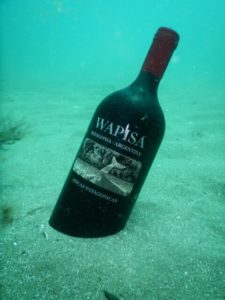Perhaps you are unaware that farmers here and around the world are paid to NOT grow certain crops because if they did it would drive down prices so much that all farmers would suffer. This is a direct result of free market economics. The law of supply and demand. Read about it in this article if you are surprised.
Most markets, like oil and natural gas, accept these oscillating price characteristics. Periods of high prices encourage drillers to explore and drill more only to overproduce that results in shutting down wells. There is little to no “coordination or control” in these free markets … they tend to seek their own natural equilibrium over time. Of course, if the market players decided behind closed doors to coordinate this, it is called restraint of trade and can be one of the quickest ways to get into prison. It is also called “market manipulation” in this country. In the rest of the world, it is still legal and is called the well-known Oil Cartel. The idea there of course is to control the world supply so that prices stay high. Fortunately, through energy efficiency and enhanced oil and natural gas supply drilling techniques, we have pretty much limited the impact of this cartel with our ability to supply our own needs … again due to free markets working in this country.

Carbon is now entering the world of supply and demand with Brazil asking for subsidies to stop destroying the Rain Forest … which they are doing to clear cropland to raise cattle and grow soybeans to feed them. The government refused to stop them because this provided a livelihood for their people. Seems reasonable again if you can believe and trust that the Brazilian government will pass this on to their farmers. Evidence that the money we send to other countries to help their people and actually does seems as scarce as hen’s teeth. You decide. Read the WSJ article here.
Please remember that payments like this must be made each and every year. It reminds me of the stories of our National Park rangers who have emphasized that we should not feed the bears in these parks. The results are always tragic. Once you stop feeding them, the bears become extremely aggressive and raid neighboring houses.
One can only hope that our national political process will take a careful look at this latest bribe offer and consider whether it really solves the problem, or more likely just kicks the can down the road while encouraging even more bribery proposals.





